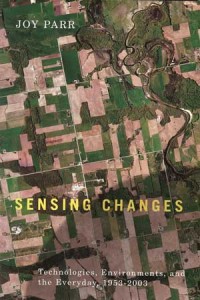I've been working as a consulting historian in one capacity or another for three years, and as a public history professional for the last five. In this time I've come across a number of podcasts and posts that I've found especially useful in answering the questions that any humanities and/or social science graduate would reasonably have when striking out into the business world.
After discussions at the 2013 National Council on Public History conference, held from April 17-20 here in Ottawa, I've decided to aggregate those resources into a list so that others with similar questions have a 'jumping off' point as they start explore the private sector for themselves. If you have other resources that may be of use, please leave a note in the comments!
Monday, 22 April 2013
Monday, 8 April 2013
Crosspost: The Politics of Place: Local history and the Megaproject
Note: This review was written for and originally posted at Active History on March 14, 2013. I encourage anyone interested in commenting to leave a note on the original paper.
Sensing Changes: Technologies, Environment, and the Everyday, 1953-2003
Joy Parr
University of British Columbia Press
Paperback, 304 pages, $32.95
 Just as all politics can be viewed as local, so, too, can history. Joy Parr’s Sensing Changes: Technologies, Environments, and the Everyday, 1953–2003 (UBC
Press, 2010) explores local reactions to a series of “megaprojects,”
with a focus on how the residents and workers involved adapted to
changing environments, technologies, and everyday experiences often
outside of their control. Through seven diverse episodes—ranging from
the creation of CFB Gagetown in New Brunswick, the building of the Saint
Lawrence Seaway in eastern Ontario, the flooding of the Arrow Lakes in
British Columbia, three aspects of Canada’s nuclear program, and the
local and provincial response to the e.coli outbreak in
Walkerton, Ontario in 2001—Parr seeks to reclaim the vital importance of
local, embodied experience in historical research and writing, and, by
extension, in political and policy decision-making processes.
Just as all politics can be viewed as local, so, too, can history. Joy Parr’s Sensing Changes: Technologies, Environments, and the Everyday, 1953–2003 (UBC
Press, 2010) explores local reactions to a series of “megaprojects,”
with a focus on how the residents and workers involved adapted to
changing environments, technologies, and everyday experiences often
outside of their control. Through seven diverse episodes—ranging from
the creation of CFB Gagetown in New Brunswick, the building of the Saint
Lawrence Seaway in eastern Ontario, the flooding of the Arrow Lakes in
British Columbia, three aspects of Canada’s nuclear program, and the
local and provincial response to the e.coli outbreak in
Walkerton, Ontario in 2001—Parr seeks to reclaim the vital importance of
local, embodied experience in historical research and writing, and, by
extension, in political and policy decision-making processes.
Subscribe to:
Posts (Atom)